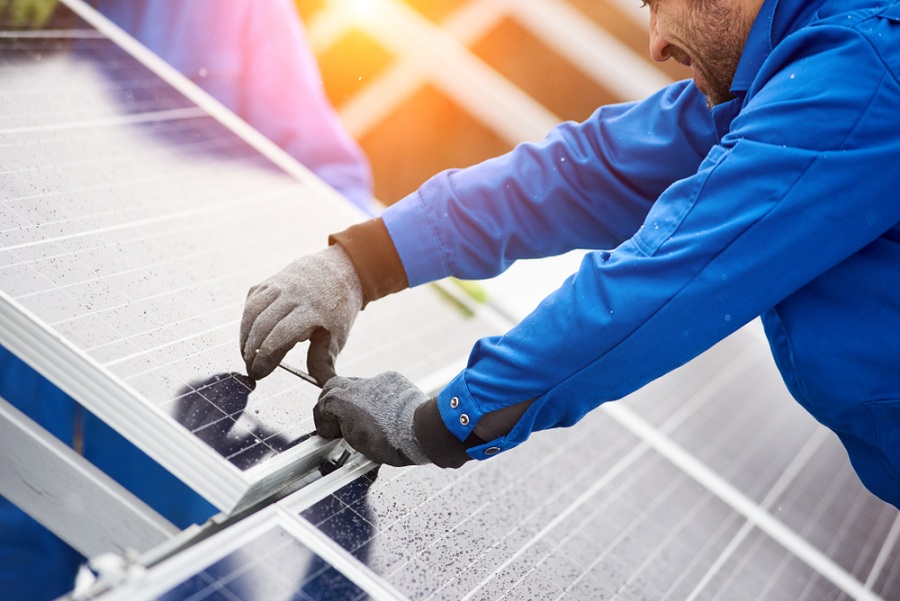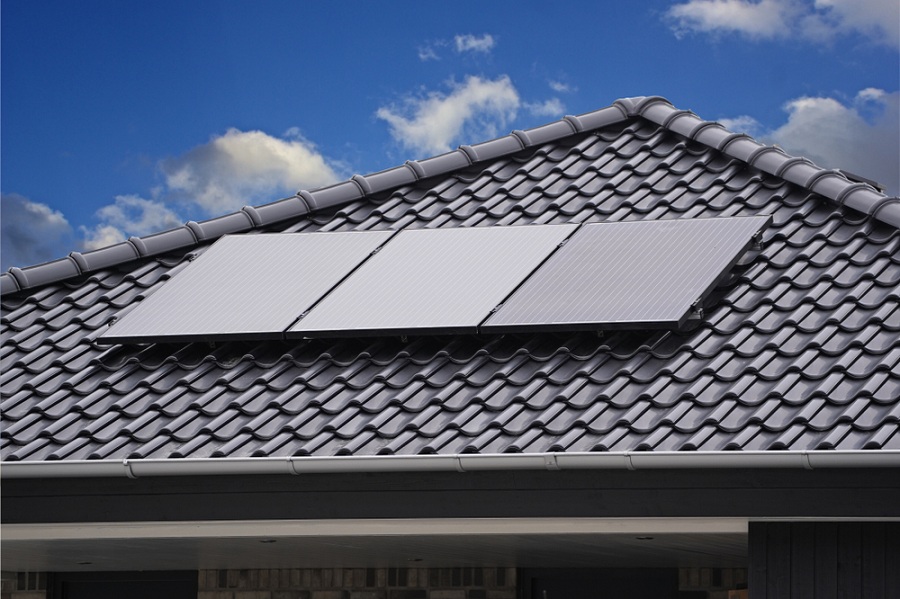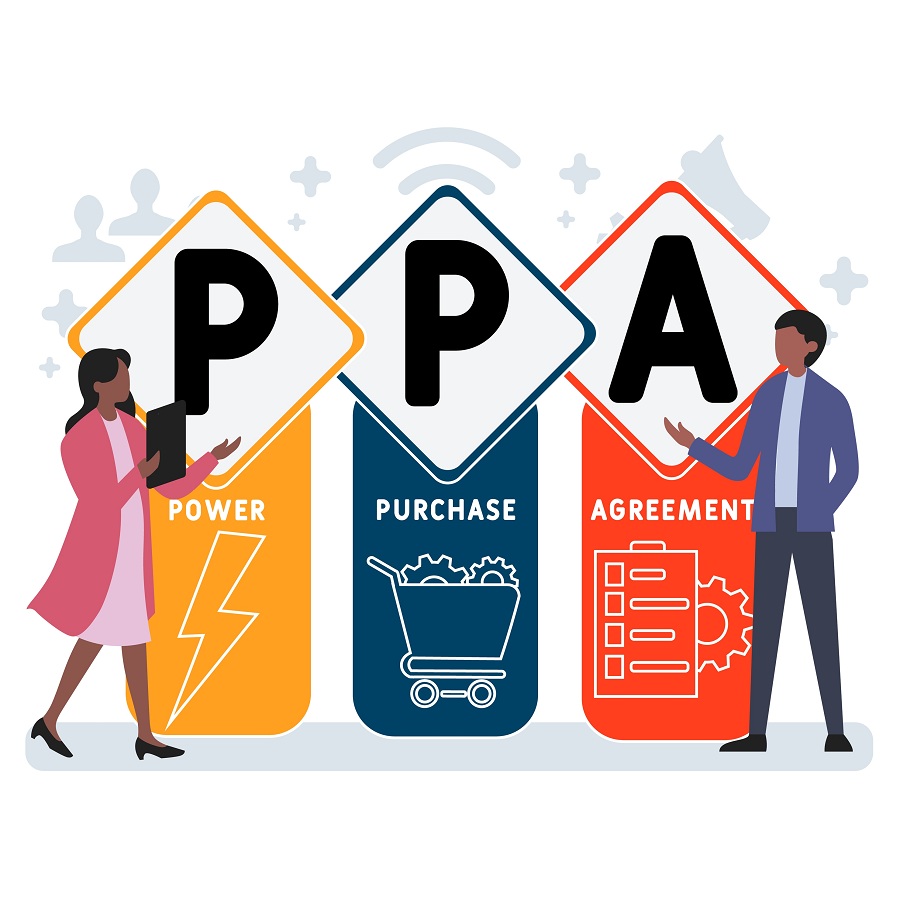Solar leases and PPAs are two types of solar financing options that allow homeowners to install solar energy systems on their roofs easily. Both options are very similar, so they're difficult to distinguish.
Here, we explain how each of these financing options works and which one might be better suited for you.
What Are Solar Leases and Solar PPAs?
Both solar lease and PPA programs function similarly to leasing a car. You don't actually "buy" the solar panels but instead pay a monthly fee for them installed on your roof.
With net metering systems, you can use the solar power produced by the system to offset your monthly electric bills. You then pay the solar company a fixed monthly rate that is lower than your current electric bill.
Characteristics of Solar Leases and Solar PPA

No need to pay upfront
There's no upfront cost associated with installing solar panels. But this means you're not the entire solar energy industry owner.
Monthly Fees
You don't pay upfront for a solar panel system, but you pay a monthly fee for the service they provide that produces clean power! So you don't actually "buy" the panels but get access to the energy they generate.
Your solar panel system produces electricity which reduces your electric bill. With a solar lease or power purchase agreement (PPA), you'll usually pay less for electricity than you'd otherwise pay if you didn't install solar.
Price Upsurge
Your monthly payments for your solar lease or PPAs will go up every month. Your solar contract will mention the rate at which your payments will grow. The increase in solar lease price often ranges from 3% to 5%.
Long-Term Agreement

You will be signing a long-term agreement with a solar energy provider. Solar PPA contracts typically last between 20 to 25 years. Solar leases usually last for 10 to 25 years.
You can either buy the solar panel system at the end of your contract or have them removed.
No Maintenance and Monitoring Cost
The solar company will take care of the maintenance and monitoring of the solar power system. It means that you don’t need to pay for them.
Difficulty in Selling Your Home
Solar leasing and power purchase agreements (PPAs) can be transferred to the next owner if you're looking for ways to sell your house. However, this may make selling your house a bit difficult.
If new homeowners decide not to continue with the solar leasing or power purchase agreement, you may be required to pay a fee to terminate the contract.
How to Differentiate Between a Solar Lease and a Solar PPA

Solar lease and solar PPA are pretty similar, so it's hard to tell their differences. So, what’s the difference between them?
With a solar lease, you'll be paying a set monthly fee for an agreed period of time. Your lease contract will specify these details. You'll pay less than you would for your current utility company.
If your monthly electric bill were $150, your solar lease payments would be $80 per month. Lease payments depend on where you live, who installs your solar panels, and how big your solar system is.
A solar PPA is similar to your electricity bill, where you're billed per kilowatt hour (KW) of power produced by the solar panels. Your solar PPA rate will vary depending on how much power the solar panels generate.
With your power purchase agreement (PPA), you'll pay less for electricity than your local electric company charges per kilowatt hour.
If your utility bills you $0.15/kWh, a solar company may offer you $0.12/kWh through their power purchase agreement (PPA). You can expect variable PPA costs based on location, installation, and electricity prices.
Solar PPA or Solar lease - Which is The Better Choice?
Either you sign up for a solar power purchase agreement (PPA) or a solar leasing program, you'll still benefit from cleaner energy and paying less.
A solar power purchase agreement (PPA) can save you more money than a traditional electricity plan because your monthly payments depend on how much energy the system produces.
If, in June, your solar panel system produced 800 kilowatt hours of energy and your power provider charged you $0.15 per kilowatt hour, then your total bill would be $1,200 for the month.
Because of fewer sunshine hours, the panels produced only 600 kilowatts of electricity during December. You will have to pay just $90 for your power bill because less energy is generated.
With a solar leasing program, your monthly payments would remain the same regardless of the amount of energy produced by your solar panels.
Leasing might not be as good an option for saving money as a PPA would be, but having one flat lease payment can make the monthly cost of your electricity much easier to handle. Monthly payments won't change, so you can easily plan your finances around them.
Other Financing Alternatives to Solar PPA or Solar lease

You don't need to pay an upfront cost when leasing or purchasing solar panels through a solar lease or solar PPA. However, there are some drawbacks to these options.
When leasing a solar panel system or signing up for a power purchase agreement (PPA), you don't own the solar panels you have installed in your house. You're not eligible for any federal solar incentive programs, including the federal tax credit, which lowers the cost of installing solar panels by 26%.
After 2022, the credit will be reduced from 26% to 22%, before expiring completely in 2024. You should be taking advantage of the credit right away to get the most out of it.
Solar PPAs and solar lease contracts aren't as good as other solar financing options for long-term savings. If you buy a solar power system using cash or by taking out a solar loan, the cost of the system will eventually be repaid.
You're generating enough free energy at that point because you don't need to make any monthly payments. Cash-purchased panels and panels financed by loans usually provide a larger overall return on investment than PPA and lease deals.
Solar lease and PPA prices include annual increases, so the cost of solar energy will go up yearly. This price escalation typically ranges from 3 percent to 5 percent.
If the price of energy from your local power company doesn't rise at the same pace as the price escalator in terms of your agreement, you won't save as much money. After several years, you might end up paying more than you would have had you not gotten a solar leasing or power purchase agreement.
Is it Right To Choose Solar Lease or Solar PPA?
It would be best if you compared solar financing costs from various companies to choose an installer who offers the best price for your needs. Buying a solar power system outright or taking out an interest-free solar loan will give you better returns in the long run. You can benefit from solar subsidies and incentives.
If you don't have the funds to buy solar panels outright, you should consider solar leasing or solar PPA instead. In this scenario, solar leasing and PPA might be the best option for you to go solar.


